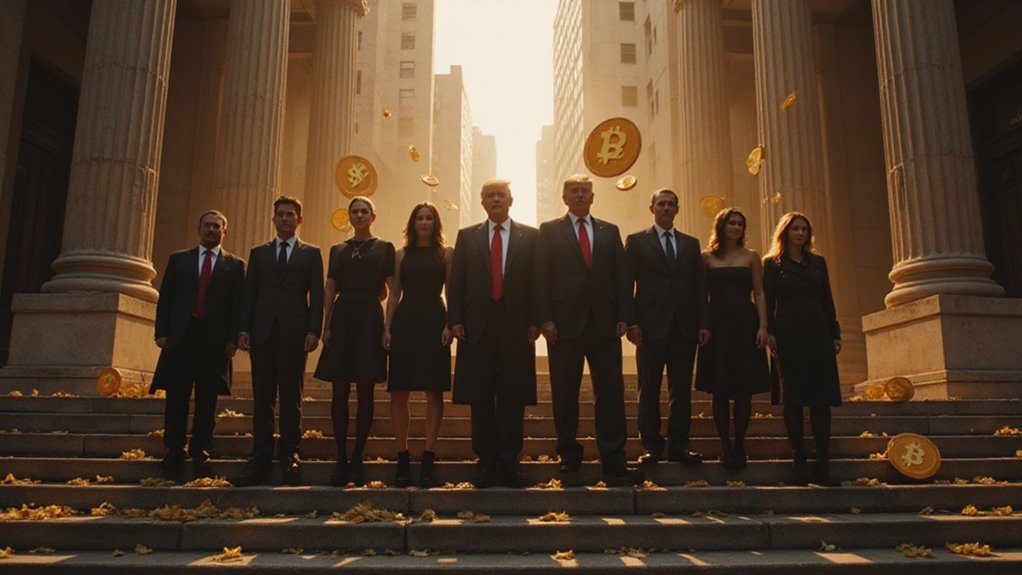While the cryptocurrency market operates around the clock across borderless digital networks, the regulatory frameworks governing these assets remain stubbornly anchored to geographic boundaries—a fundamental mismatch that has created a patchwork of rules ranging from the embracingly permissive to the prohibitively draconian.
Consider the remarkable regulatory spectrum: El Salvador and the Central African Republic have elevated Bitcoin to legal tender status (an economic gamble that would make Las Vegas blush), while China maintains its characteristic iron grip, banning cryptocurrency transactions entirely. Meanwhile, Singapore and Switzerland have emerged as the diplomatic adults in the room, crafting clear guidelines that foster innovation without abandoning prudential oversight.
The global cryptocurrency regulatory landscape spans from reckless embrace to outright prohibition, with only a few nations striking a sensible balance.
The United States presents perhaps the most Byzantine regulatory landscape, where multiple agencies—the SEC, CFTC, and FinCEN—engage in jurisdictional theater that would be comedic if not for the billions in compliance costs it generates.
Crypto businesses find themselves classified as financial institutions under the Bank Secrecy Act, subject to the same Anti-Money Laundering (AML) and Counter-Terrorism Financing (CTF) requirements as traditional banks, despite operating in an entirely different technological paradigm. Entities engaged in cryptocurrency exchange, transfer, or custody are specifically designated as Money Services Businesses, requiring mandatory FinCEN registration and comprehensive compliance programs.
This regulatory fragmentation creates a peculiar form of financial Darwinism, where crypto enterprises must either adapt to multiple conflicting frameworks or risk extinction through non-compliance.
The European Union’s Markets in Crypto-Assets (MiCA) regulation represents an ambitious attempt to harmonize rules across member states, though developmental uncertainty remains an unwelcome companion to market participants. In contrast, India’s regulatory journey demonstrates the volatility of policy-making in this space, with the Supreme Court revoking a banking ban in 2020 while simultaneously imposing a punitive 30% tax on cryptocurrency earnings.
Australia’s AUSTRAC and the UK’s Financial Conduct Authority exemplify the global trend toward stringent Know Your Customer (KYC) and transaction monitoring requirements, transforming what was once a pseudonymous financial frontier into a thoroughly surveilled landscape. In Canada, FINTRAC regulation has enabled platforms like Bitbuy to operate as compliant cryptocurrency exchanges, offering services from basic trading to sophisticated OTC transactions while maintaining proper oversight and security standards.
The irony is palpable: an industry born from libertarian ideals of decentralization now finds itself increasingly centralized under regulatory oversight.
Yet perhaps this represents maturation rather than capitulation. Singapore’s finalized stablecoin framework and Hong Kong’s thorough licensing regime for exchanges suggest that regulatory clarity—rather than regulatory absence—may ultimately prove more valuable to institutional adoption than the wild west atmosphere that characterized crypto’s early years.
The journey from chaos to control continues, with survival increasingly dependent on compliance rather than code alone.









